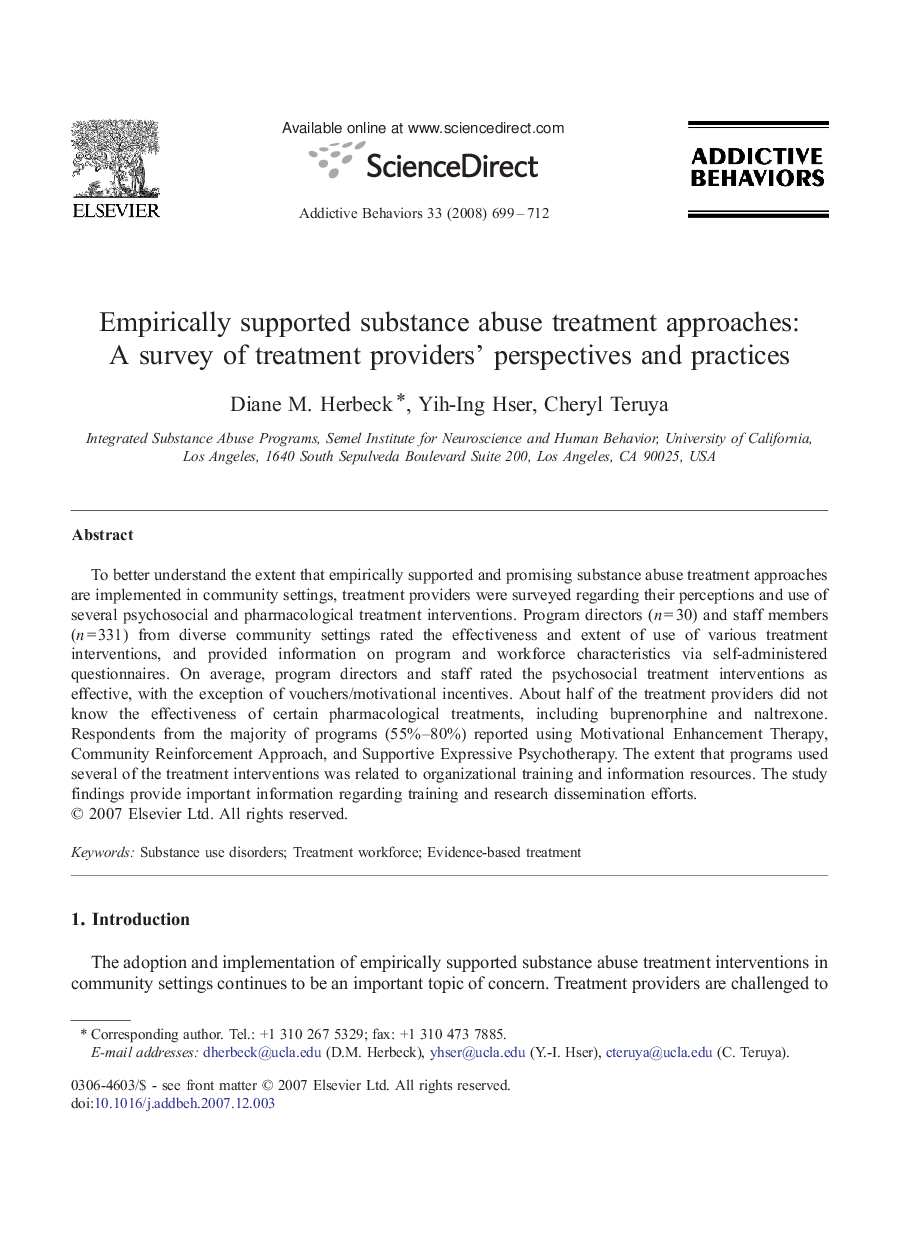| Article ID | Journal | Published Year | Pages | File Type |
|---|---|---|---|---|
| 899868 | Addictive Behaviors | 2008 | 14 Pages |
To better understand the extent that empirically supported and promising substance abuse treatment approaches are implemented in community settings, treatment providers were surveyed regarding their perceptions and use of several psychosocial and pharmacological treatment interventions. Program directors (n = 30) and staff members (n = 331) from diverse community settings rated the effectiveness and extent of use of various treatment interventions, and provided information on program and workforce characteristics via self-administered questionnaires. On average, program directors and staff rated the psychosocial treatment interventions as effective, with the exception of vouchers/motivational incentives. About half of the treatment providers did not know the effectiveness of certain pharmacological treatments, including buprenorphine and naltrexone. Respondents from the majority of programs (55%–80%) reported using Motivational Enhancement Therapy, Community Reinforcement Approach, and Supportive Expressive Psychotherapy. The extent that programs used several of the treatment interventions was related to organizational training and information resources. The study findings provide important information regarding training and research dissemination efforts.
